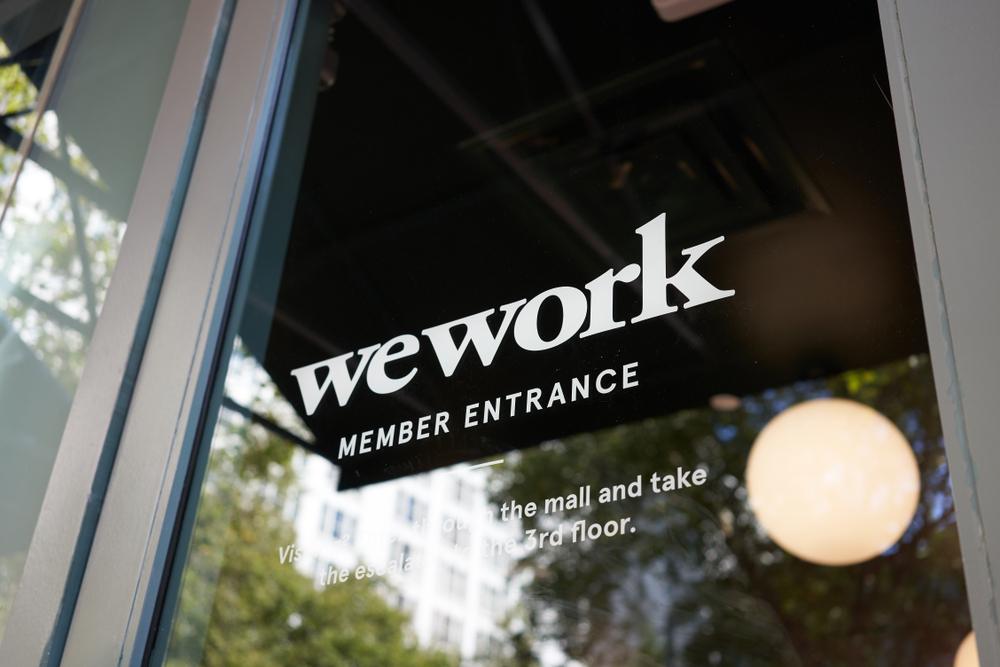WeWork Meltdown Shows Pitfalls of Adam Neumann’s Personality Cult

The cult of personality at WeWork is one reason why the company's IPO imploded. Adam Neumann was no Elon Musk. | Source: AP Photo / Mark Lennihan
The WeWork IPO is toast . The writing was on the wall for several days prior to the announcement, as the company’s roadshows failed at every turn.
As much as Wall Street may point to the company’s risky business model as a reason for the failure of the IPO , an equally significant reason is the (now former) CEO himself, Adam Neumann.
Visionary or Con Man?
There is a fine line between visionary and nutcase. There’s an equally fine line between a visionary and a con man. As much as I like to rag on Elon musk, I can’t deny that he’s a pretty remarkable guy with some pretty visionary ideas.
The problem with Elon Musk, however, is that he relies on rent-seeking to fund his crazy ideas. His constant use of smoke and mirrors and distraction is what makes him an untrustworthy con man.
While many might say that removing him as the CEO might be the road for Tesla to take to become a legitimate car manufacturer, just as many might say that Elon Musk is the heart of the company.
In the case of Tesla, the cult of personality is what has likely kept the company from completely imploding. In this case, however, there is a paradox because it is that same personality that has gotten Tesla this far.
The cult of personality has backfired, though, for Adam Neumann and WeWork.
Conflicts of Interest
The conflicts of interest within the company were already a red flag for investors.
Adam Neumann is the landlord for a number of WeWork spaces that signed long-term lease commitments. Self-dealing might be acceptable if the company itself was making a fortune, but Neumann’s form of self-dealing isn’t something that Wall Street investors took kindly to since the company was losing a lot of money.
The other problem Adam Neumann had is that he simply not as deft a con man as Elon Musk. His act was as transparent as it comes.
Nobody was buying that WeWork was a technology company. WeWork was nothing more than a subleasing real estate operation. Not only that, it was a really expensive operation.
Nobody Was Fooled by WeWork

Anyone that calls a coworking space a “technology company” – and thus tries to pull the wool over the eyes of Wall Street – is going to have to do a better job.
Ed Butowsky, Managing Partner at Chapwood Capital Investment Management, tells CCN.com:
“Trying to get investors to focus on ‘community-based ROI’ was a ridiculous attempt to move the goalposts with regards to how a real estate company should be evaluated. That kind of approach smelled fishy right from the beginning. At least when Elon Musk speaks, he seems to really believe that he can put a man on Mars.”
The cult of personality can also generate dividends – if the personality can also follow through with the execution.
As much as we may all hate Facebook for its invasion of privacy and censorship, and dislike Mark Zuckerberg, it is his personality and vision that has made Facebook what it is today.
I’ve spoken with Uber employees who were with the company both prior to and after Travis Kalanick’s departure. They tell me that, regardless of how bad Kalanick’s optics were, he brought his disruptive attitude into work every day.
His approach to ignoring regulations and frequent publicity stunts were a large part of Uber’s early success. Now Uber lacks a personality to associate with the company, and I think that’s been a setback for it.
I don’t buy the hype that WeWork was a disruptive business that required a disruptive personality to run the company.
It’s disingenuous to suggest that renovating office space into a snazzy upscale environment, which allegedly encouraged community and fun and collaboration, was somehow disruptive.
Sure, the concept of short-term leasing and coworking are nifty ideas, but WeWork’s execution was hardly anything to write home about.
We don’t need cults of personality. We need operators who deliver.